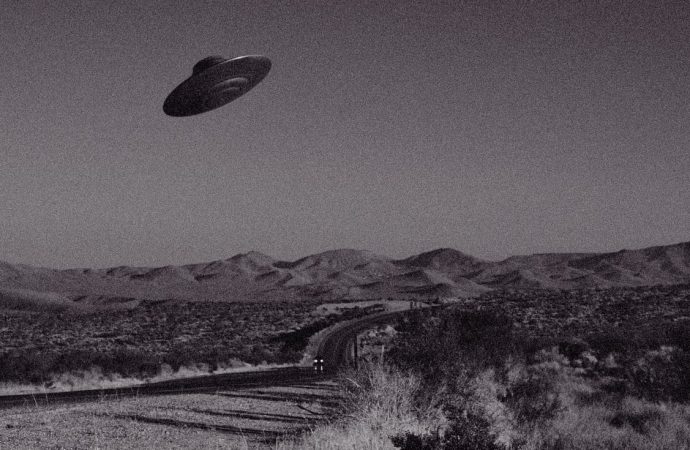In an age of wild claims churned out by politicians, media and advertisers, perhaps people don’t care as much any more.
This month, the two major online sites for reporting UFOs – the National UFO Reporting Center and the Mutual UFO Network – both documented steep drops in worldwide sightings. The declines started around 2014, when reports were at a peak. They have since reduced drastically to 55% of that year’s combined total, many UFO interest groups have folded, and numerous previously classified government documents have been disclosed.
Do these declines reveal that UFO interest is becoming a blip on the human cultural radar? Perhaps UFO and alien lore is seeming more like a reflection of human culture, tied to the space age, motivated by conquering new existential frontiers.
It might not be a coincidence that the term UFO (unidentified flying object) and some of the phenomena that surrounds it – abductions and impossible technologies – are relatively recent. Before the 1940s, reports of sightings of objects in the sky were extremely rare. Centuries of recorded history give no clear indication of any such activity. Then, at the predawn of the space-age, around the time of the Roswell conspiracy, UFO culture was born, giving rise to everything from Space Invaders to The X-Files.
Possible answers as to why sightings are decreasing are varied. A key factor, however, may be that more people simply don’t care any more. As we are accustomed to being inundated with wild claims churned out by politicians, media and advertisers, the next report of a UFO is no more believed than the long-range weather forecast.
Before home video, photographs were the staple of UFO evidence. Video evidence, during the height of the 1990s UFO mania, was regarded by many as even more substantial. Amateur footage of glowing objects in the sky, as mysterious as they seemed real, made the cut for appearing on television – they were meant to be taken seriously and they fed an audience hungry for amazement, helped by a healthy dose of conspiracy theorising.
According to the cultural historian Stuart Walton, “Belief in UFOs is definitely in a state of decline, along with much else that could be classed as paranormal. Part of the reason is that the technology for providing documentary evidence of such matters is now widely available to everybody with a smartphone, and such purported evidence as there is on YouTube looks extremely threadbare.”
He adds: “It isn’t so much that belief can exist without proof; it’s that it must emphatically avoid proof to remain belief. We are in the process, paradoxically, of proving a negative hypothesis with UFOs: there never was any such thing.”
Indeed, indisputable evidence of intelligent life coming to Earth could be the greatest news of all time. Yet, after thousands of anecdotal, photo, and video reports have accrued over decades, what are we to conclude? With the greatest balance of scepticism and “wanting to believe”, all that can confidently be asserted is that some objects, appearing in the sky on film or video, seem unidentifiable.
Furthermore, government disclosure of its own video footage isn’t helping to maintain belief. Joseph Baker, sociology professor at Tennessee State University, says: “It’s actually better for UFOs when ufologists can claim that ‘the powers that be know everything and are hiding it from us’ rather than seeing that the government appears to have basically the same info about UFOs as the public: namely grainy, inconclusive visual evidence.”
Perhaps though, the declines in reported sightings may signify only an end to current trends in ufology. After all, from the 1940s aliens were originally characterised as saviours who could help humans transcend the cold-war paranoia of nuclear annihilation; especially marked at the time, after two world wars. But after events like Watergate and the Vietnam war fuelled distrust in government, UFOs came to be viewed more as a possible threat, and some came to believe their existence was verified in secret military documents.
Sharon Hill, a researcher on the paranormal and pseudoscience, says: “The ideas about UFOs and aliens continue to evolve as we project our social and cultural ideas on them. Since we have no single easy explanation for all these claims regarding the decline in sightings, the future vision of ufology seems rather open-ended. I don’t think it’s dead, just changing.”
Source: The Guardian

































Leave a Comment
You must be logged in to post a comment.